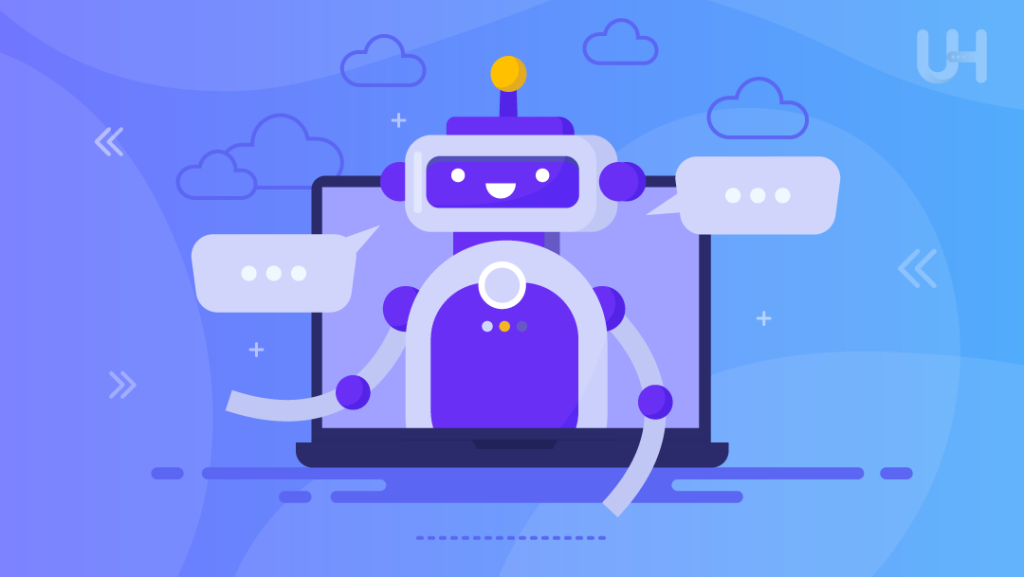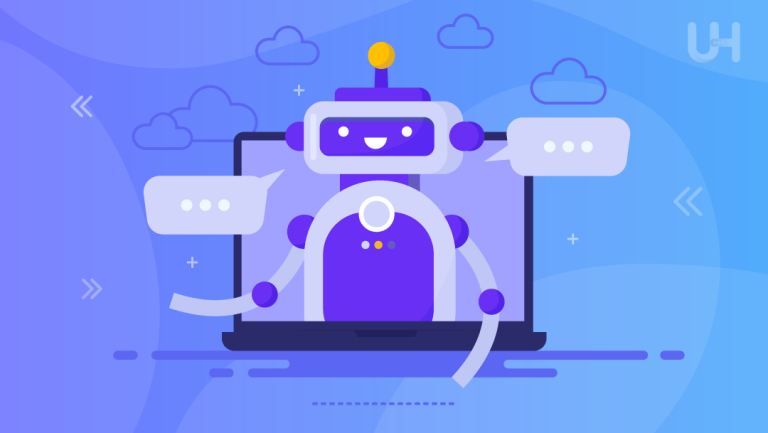Early-stage startups need to manage and overcome various challenges to become successful and profitable. From a limited workforce and a shoestring budget to a lack of in-house technologies for differentiation, startups constantly swing from one challenge to another, making them prone to taking risks and consequently failing.
Startups must look to maximum things to get the most for less while creating a meaningful impact. In this context, the impact of AI (Artificial Intelligence) can’t be underestimated in today’s rapidly changing digital world. It stands out as a driving force pushing the boundaries of innovation with the potential to disrupt various industries, revolutionizing all verticals.
However, AI adoption by startups can be complicated, given they struggle with limited resources, lack of in-house AI experts, and compounding complexities associated with implementing AI solutions. These challenges can deter early-stage startups from leveraging the powerful AI tools, potentially stalling growth and innovation. But with an AI adoption roadmap for early-stage startups, companies can easily circumnavigate all hurdles and strategically integrate AI to unlock growth. So, let’s jump and take you through a detailed AI adoption roadmap for early-stage startups to help you leverage this disruptive technology to get the best out of it.
Understanding AI Capabilities
Before jumping to the strategic AI adoption roadmap for early-stage startups, learning about the basics of AI will facilitate streamlined implementation. AI allows machines to perform tasks at scale that typically require human intelligence.
The core concepts of AI include the following:
- Machine Learning – It is a subset of AI that involves training a computer to learn from data. It enables computers to identify patterns and make decisions with minimal human intervention.
- Deep Learning – It is a more complex subset of machine learning. It mimics the working of the human brain using neural networks of many layers. It results in data being processed to recognize patterns of use for better decision-making.
- Natural language processing – NLP deals with the interaction between computers and human language. The NLP algorithms analyze language structure, syntax, and semantics to understand, interpret, and generate human languages. It makes chatbots, voice assistants, and similar things possible.
- Robotics – Besides the hardware and engineering part of robotics, AI plays a crucial role by providing the intelligence that allows robots to perceive their environment, make decisions, and perform actions. Robotics with smart integration of AI can streamline business logistics on a grand scale.
- Big Data – It refers to massive datasets that are too complex for traditional methods to process. AI algorithms can use big data to identify patterns, trends, and correlations to extract insight. It primarily uses machine learning and deep learning techniques to process large datasets.
AI Applications Relevant to Startups
AI is rapidly evolving and advancing to unlock new potential for disrupting various vertices across industries. For instance, in marketing, AI can personalize customer interaction through data-driven insights, optimize campaigns to boost engagement and conversion rates, and more. Due to the lack of domain experts and resource crunch, especially in finance, startups can use AI for real-time fraud detection, risk assessment, and automated trading, providing a competitive edge in a fast-paced industry. Beyond this, startups can integrate AI to embrace digital transformation to get the most out of it.
Managing customer services and relationships is one of the most demanding tasks for startups. It requires a lot of trained professionals that can overshoot the budget. AI in customer service through the mindful implementation of AI chatbots and support tools offers 24/7 assistance, saving the cost of hiring too many people. However, these are just some rudimentary examples that barely scratch the surface. The true strength of AI for startups lies in its versatility and tailored solutions to specific challenges faced by startups. However, to get the most out of it, it is imperative to look at the current impact of AI on different industries to clue startups about its multifaceted use.
Benefits of AI Adoption for Early-Stage Startups
There are plenty of benefits of AI adoption for early-stage startups. The core of it lies in mindfully assimilating AI, which promotes efficiency, productivity, and company growth. Given the constant resource crunch, AI allows startups to automate repetitive tasks so that they can focus on core business activities, such as strategy-making, implementation, and sustenance. Let’s briefly examine the broad benefits of AI adoption for early-stage startups.
Enhanced Efficiency and Automation
- AI can fundamentally transfer how operations are managed and executed for startups with limited employee strength. Startups can automate repetitive and time-consuming tasks, such as data entry, customer inquiry response, and even more complex data analysis.
- The right AI tools can streamline the entire workflow, enabling startups to optimize their operations dynamically to allocate better and manage precious resources.
- Mindful implementation of AI for startups can free up valuable resources that can be used better where it is more required, enhancing the strategic agility of startups.
- AI tools like Fireflies and Other.AI can transcribe and summarize meetings into actionable, concise notes, ensuring no critical point is missed.
Improved Decision Making
- Startups generally have limited market knowledge. Startups can deploy AI to analyze and interpret vast amounts of data for deeper insight and conclusions, allowing faster decision-making.
- The faster decision-making due to AI allows startups to revolutionize their decision-making process backed by data-driven approaches and extrapolated information based on large datasets.
- AI predictive analytics can uncover patterns and behaviors for startups, enabling them to make better decisions to achieve their business goals and objectives.
- AI tools like Tableau and Microsoft Power BI enable startups to sift through large data sets, making predictions for informed decision-making.
Gaining a Competitive Edge
- AI allows startups to incorporate innovative features and provide personalized customer experiences, making them stand out from the industry’s established names.
- AI-powered innovation can enable startups to develop unique, disruptive products or services that address unmet market needs or improve upon existing solutions with limited resources and faster ready-to-market times.
- Integrating AI technologies allows startups to opt for sophisticated solutions, positioning their brand as forward-thinking and customer-centric, making the startup’s brand identity futuristic.
- AI tools can fast-track research, development, and marketing research, reducing time and cost and bringing new ideas to market.
Future-proofing, Long Term Advantages
- Beyond immediate operational efficiencies, AI adoption for startups lays the foundation for a future-proof business model and easy adoption of digital transformation.
- By investing in AI technologies, startups can establish themselves as leaders in innovation, adapt more readily, and scale more efficiently than conventional businesses in the same industry.
- Adopting AI for startup growth can inculcate a culture of innovation and creativity while ensuring sustainability in a rapidly changing business landscape. This makes the team self-motivated to incorporate emerging technologies.
- AI can transform knowledge management within the startup, making it easier in the longer term to leverage collective knowledge for advantage.
Beyond these handful of benefits, the impact of AI on Industries has been immense. From detecting potential bottlenecks before they impact the business to predicting future trends and market behavior, the benefits of AI and allied technologies are up to the innovative implementation by startups for growth.
The AI Adoption Roadmap

An extensive and mindful AI adoption Roadmap for early-stage startups includes three distinct and identifiable steps. Startups can begin by finding the areas of the business where they can integrate AI solutions. Next comes the testing to judge whether these AI solutions will be more beneficial than the traditional already-existing solutions. Then comes deploying in a phased manner. Finally, all theories aside, all good plans hinge on precise execution.
Phase 1: Discovery and Assessment
Companies should analyze their operations before jumping on how startups can boost growth via AI. The first step in AI adoption for early-stage startups is discovery and assessment. It involves identifying specific business challenges or opportunities for AI solutions. Further, startups must focus equally on understanding AI capabilities, team building, and skill gap analysis. Finally, allocating a sufficient budget based on your assessment will keep you on the right path of AI adoption.
Identify Business Needs
- Gather inputs from all key stakeholders, including executives, managers, and employees, to identify specific areas where AI can offer value.
- Conduct a thorough analysis of your business operations, processes, and data to identify areas where AI can have the most significant impact.
- These may include automating repetitive tasks, improved decision-making, or more.
- Prioritize your AI adoption initiatives that foster growth and align with your overall business goals.
Understanding AI Capabilities
- Research on different AI solutions and their potential applications. Startups can refer to research and case studies to identify tools and technologies.
- This may include Generative AI, Natural Language Processing (NLP), machine learning, computer vision, and deep learning.
- Choose AI solutions that are easy to use, scale, and integrate into existing systems without a significant revamp.
- Remember your business goals and brand identity when selecting AI solutions and understanding their capabilities.
Team Building and Skills Gap Analysis
- Assess the existing teams’ expertise and skill level by conducting a rudimentary skill test.
- Identify the gaps based on this assessment. It can be in data science, AI literacy, and more.
- Identify key roles and responsibilities required for a streamlined AI adoption. It can include demarcating key positions like AI engineers, project managers, etc.
- Finally, consider training programs to upskill your existing employees to ensure necessary knowledge depth and expertise, enabling them to work closely with AI solutions.
Budget Allocation
- Identify the key necessities for allocating sufficient budget, such as hiring talent, acquiring tools, and training programs.
- Prioritize the budget based on the degree of value it brings to the overall AI adoption roadmap.
- Consider long-term costs and benefits to ensure your budget aligns with your business strategy.
- Finally, give yourself room for adjustment in case of unforeseen expenses that might throw your budget out of line.
Phase 2: Experimentation and Proof of Concept
It’s time to test the water once you thoroughly assess critical areas for implementing AI solutions, team building, and budget allocation. Startups must start small and then scale gradually to keep a close eye on metrics to measure success development and test proof of concept. This will allow for an iterative approach leading to refinement based on results.
Start Small, Scale Gradually
- Start by identifying small-scale AI projects that can be implemented easily and quickly. It can be Gen AI for content production or chatbots for customer service.
- Focus on AI solutions with a clear value proposition that aligns with your business needs and objectives.
- Starting small and scaling gradually allows you enough flexibility to adjust your approach on the go.
- Starting small and scaling slowly allows for better managing risk so there is a low chance of failure.
Proof of Concept (POC) Development
- A proof of concept will validate your AI solution’s feasibility, functionality, and potential.
- Use a design thinking approach to develop the POC, focusing on user needs and feedback.
- Test the POC in a controlled environment to ensure that it meets your business needs and objectives.
- Finally, your POC can be anything, from automation decision-making to offering innovative features for a competitive edge.
Metrics and Evaluation
- Established metrics and KPIs to measure the success of your POC and assess its impact.
- Startups can use the SMART framework for KPIs, i.e., Specific, Measurable, Actionable, Relevant, and Time-bound.
- On the other hand, metrics can include time savings, cost savings, accuracy, and user satisfaction.
- Using these metrics and KPIs, make data-driven decisions about scaling the AI Initiative.
Iterate and Refine
- Leveraging the learning from the POC to refine the approach based on the results is crucial for AI adoption.
- User-relevant feedback from end users is required to align your AI adoption strategy.
- Identify areas where your POC failed and devise a plan to address that using data.
- Follow this cycle enough times to fine-tune your strategy and implementation.
Phase 3: Integration and Deployment
This is the most crucial phase of the entire AI adoption roadmap for startups. It includes choosing the right AI tools and technologies, establishing robust data collection mechanisms, and integrating AI solutions into existing business systems. Finally, deployment and monitoring form an integral part of this elaborate AI adoption roadmap for startups to continuously refine their execution for more growth and efficiency.
Choosing the Right AI Tools and Technologies
- When choosing the AI tools to integrate into your existing systems, consider ease of use, scalability, and compatibility.
- Keeping the cost of acquiring the AI tools can be one of the factors but shouldn’t be alone a factor unless you have budget constraints.
- Identifying AI solutions that bring clear value propositions should be the priority, boosting efficiency and productivity and fostering growth.
- Comparing long-term costs to the benefits of AI adoption for particular solutions and tools will help make informed decisions.
Data Collection and Management
- Data allows businesses to gain deeper insight. Thus, robust data collection and management strategies are essential for feeding AI models.
- First, identify all the relevant data sources within your organization that can be used to train and feed your AI model, such as customer data, sales records, and more.
- Ensure consistency in data format across all data sources to prevent errors. Use data cleansing techniques when required.
- Implement clean guidelines for data ownership, access control, and security measures to ensure data integrity and compliance.
Integration with Existing Systems
- Identify the systems within existing business operations where AI needs to be integrated.
- Devise a clear plan after considering data compatibility, system compatibility, and integration complexity.
- Use relevant APIs (Application Programming Interface), webhooks, and other integration tools to ensure dreamless data flow between systems.
- Develop custom code to bridge the gap between the AI platform and your existing system if necessary. Use AI development services to ensure secure, efficient, and seamless integration.
Deployment and Monitoring
- Starting with a small-scale rollout, phased deployment, best mitigates unforeseen risks of significant failures.
- For tracking, define key performance indicators that align with AI adoption goals. It can be customer satisfaction rates for chatbots, sales conversion rates for AI-powered recommendations, and more.
- Continuous monitoring through tracking tools and evaluation of the data collected is imperative for optimal performance and for identifying any issues.
- Optimize performance based on chosen KPIs and regularly analyze results. This may include retraining the model with new data.
Building a Sustainable AI Culture
There are many apprehensions in employees’ minds about AI technologies due to the fear of mass job displacement. Thus, building a sustainable AI culture is crucial to the overall success of your AI adoption strategy. It creates a mindset shift towards embracing AI technologies, encouraging innovation to drive organizational growth.
Importance of an AI-Centric Culture
- Encourage a mindset shift towards embracing AI technologies by inspiring confidence and trust.
- Host workshops, training sessions, and internal campaigns to educate employees about AI benefits.
Promoting Continuous Learning
- Keep your team updated with the latest AI trends and encourage further learning.
- One fantastic way for startups to imbibe this mindset is by enrolling teams in robust educational platforms like DataCamp. This not only keeps the team updated with the latest AI trends but also provides hands-on learning experiences to enhance their AI capabilities.
- Establish ongoing learning, find or give incentives for upskilling through development programs and more.
Encouraging Experimentation and Innovation
- Provide a safe and encouraging space for collaboration for employees to experiment with AI solutions.
- Fostering a culture of creativity and exploration with AI technologies will yield the best results.
Building Responsible AI Practices
- Establish guidelines, frameworks, and processes prioritizing data privacy and avoiding bias in AI algorithms.
- Uphold ethical standards to build trust with stakeholders and mitigate potential risks associated with AI adoption.
Understanding AI Adoption Trends in Different Industries – Keeping a close eye on the adoption of AI by industries will allow us to quantify the impact of AI solutions on particular problems and the strategic execution of their implementation. For founders and teams with early-stage startups, recognizing and understanding these AI adoption trends across industries can inspire them to innovate with AI technologies, redefining their sector and gaining a competitive edge.
Conclusion
The journey to AI adoption for startups starts with how startups can use AI. However, it quickly turns into self-doubt, given that adopting AI-powered innovations can be challenging. It is undeniable that AI has immense potential to revolutionize business operations, decision-making processes, and competitive positioning. However, a structured and well-laid-out AI adoption roadmap can make it simpler for startups to hack AI for growth.
Even though the AI roadmap spells out clear phases and separate points to consider while executing them, startups must understand their business goals and objectives. It will result in a seamless integration of AI solutions to improve efficiency, productivity, and growth.
Staying up-to-date with the latest happenings in AI through forums such as Reddit’s Machine Learning subreddit can provide plenty of valuable insights. Startups should consider ethical and legal obligations in every step of the AI adoption roadmap that facilitates data security and integrity. Finally, taking the first step is essential, as the entire picture of executing the AI adoption roadmap can be overwhelming. Embrace the opportunity to transform your startup with AI.
For startups looking to scale their online presence and ensure robust performance, consider exploring reliable eCommerce hosting solutions. Check out Ultahost’s eCommerce Hosting to discover how their services can support your business growth and enhance your digital operations.










